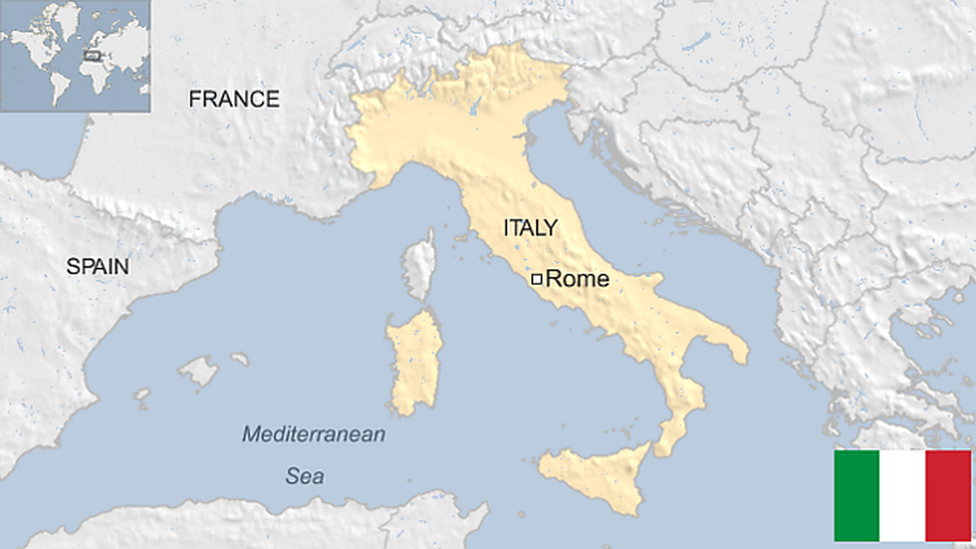Italy's Michaela Biancofiore resigns over 'homophobia'
- Published

Michaela Biancofiore is a member of ex-PM Silvio Berlusconi's centre-right People of Freedom party
A junior equal opportunities minister has resigned the day after being sworn in to Italy's new coalition, having said gay people invited discrimination by "ghettoising" themselves.
Michaela Biancofiore was defending herself against accusations of homophobia made by human rights groups.
But she invoked more wrath with Saturday's comments to Italian media.
The sacking is an upset for Prime Minister Enrico Letta's one week old left-right coalition, analysts say.
On Friday, Mr Letta, the Democratic Party deputy leader (PD), warned ministers in the fledgling government to work together and maintain "sobriety" when talking to the media.
Fragile as forecast
Ms Biancofiore, a member of ex-PM Silvio Berlusconi's centre-right People of Freedom party (PDL), has been redeployed to the civil service ministry.
She says she supports "civil unions" to protect gay couples but opposes gay marriage.
But Saturday's Italian newspapers quoted her as saying: "For once, I would like to see gay associations, instead of 'ghettoising' themselves... say something to condemn the recent spate of killings of women (in Italy)... All they do is defend their own interests."
Mr Letta's new coalition is proving as fragile as forecast, because old political enemies of left and right are finding it difficult to work together as a team, says the BBC's David Willey in Rome.
Mr Berlusconi, who is not a member of the new government, but who remains an influential political player, is trying to dictate terms and conditions under which the new coalition must operate, adds our correspondent.
Political observers say at any minute the media mogul could force new elections by withdrawing the support of his party from the hybrid coalition.
Friday's swearing-in of the new government at Rome's presidential Quirinale Palace signalled the end of two months of political deadlock.
Since February's inconclusive poll there has been political stalemate in Italy, which is still plagued by economic woes after becoming one of the first eurozone victims of the global financial crisis of 2008.
- Published13 February 2014
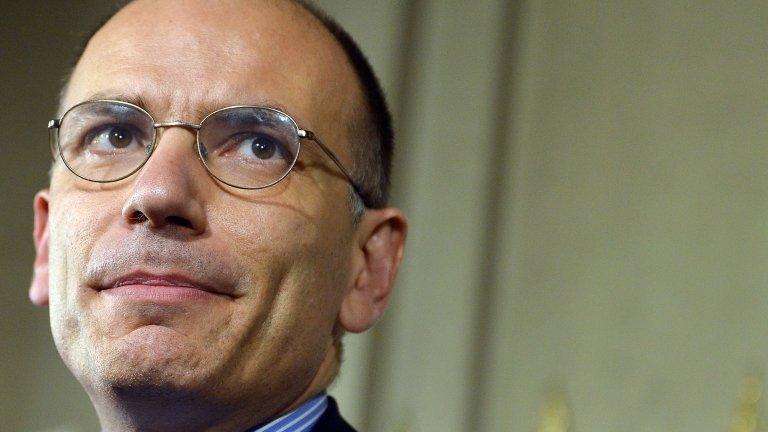
- Published28 April 2013
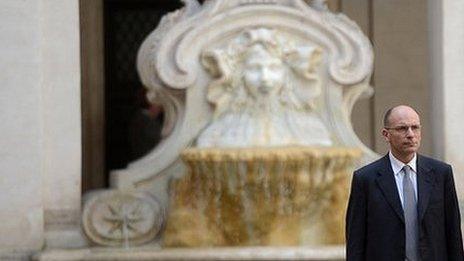
- Published27 April 2013
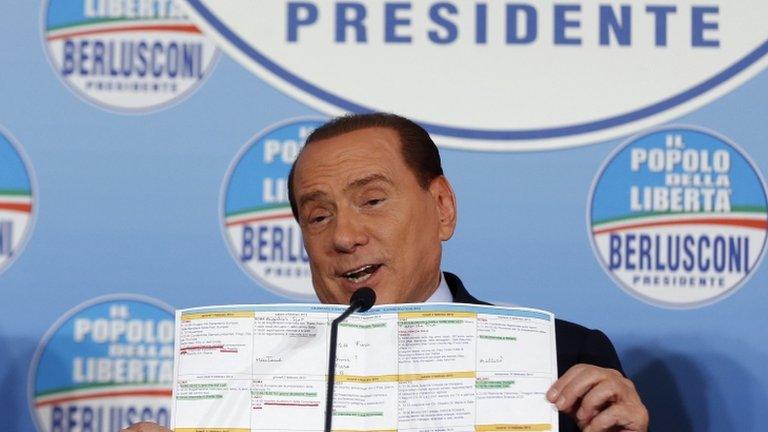
- Published23 April 2013
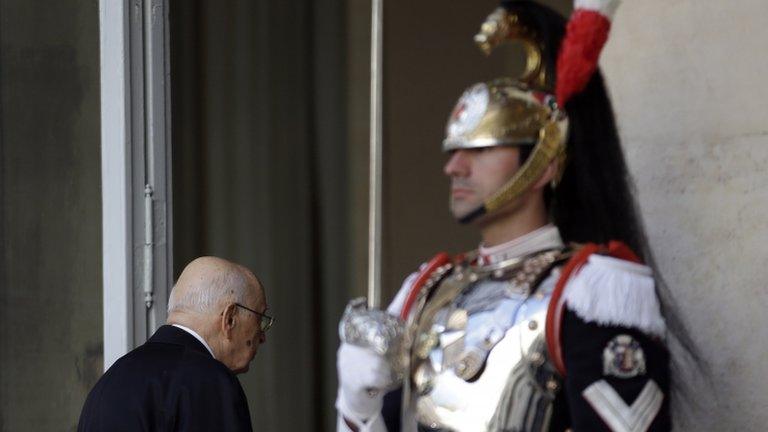
- Published4 October 2023
